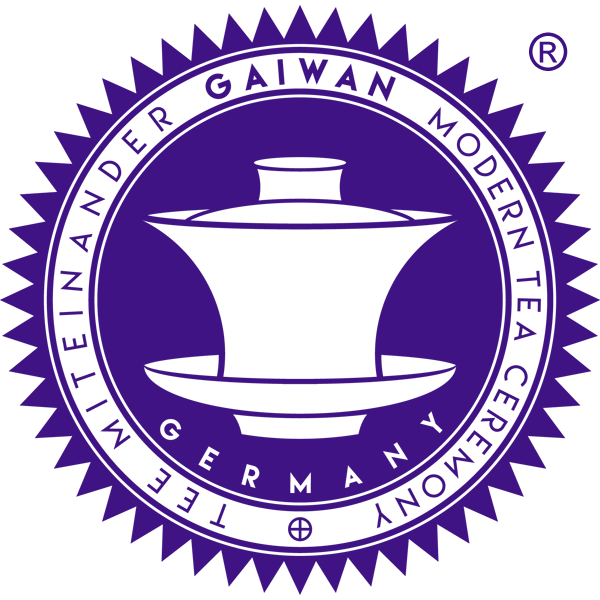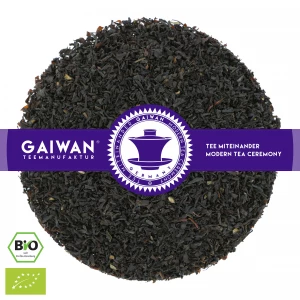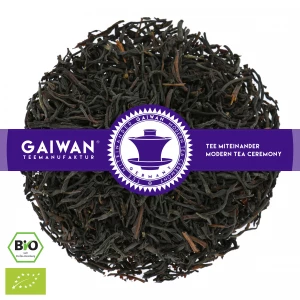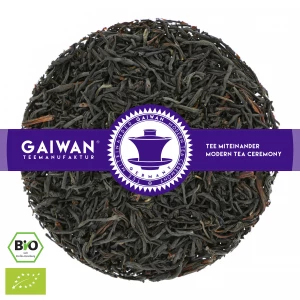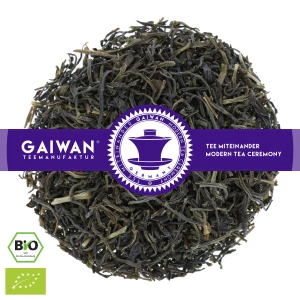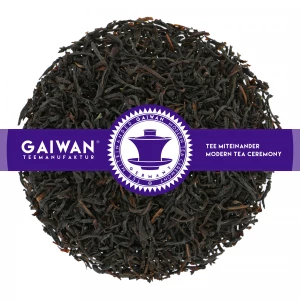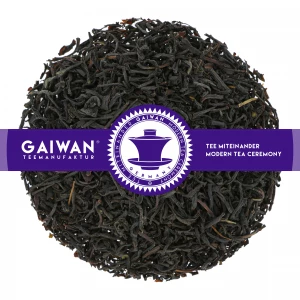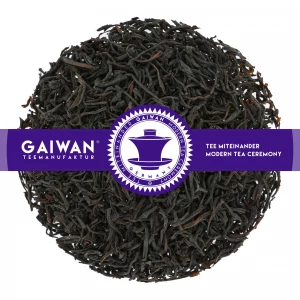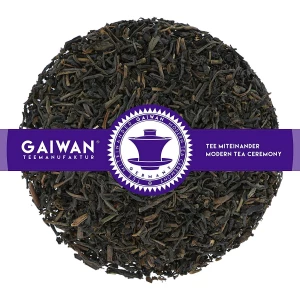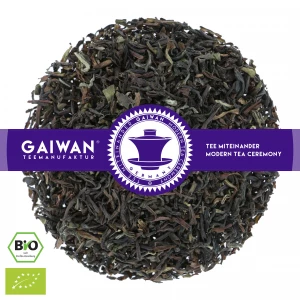Black Tea from Ceylon
Ceylon (pronounced Silon), is the present-day island nation of Sri Lanka in the Indian Ocean. The name can be traced back to British colonisation, which began in 1815 and only ended in 1948. Sri Lanka then became the official name of the island.
Furthermore, Ceylon refers to a world-renowned and, among connoisseurs, highly esteemed range of teas, consisting mainly of black teas. Black tea from Ceylon is medium-bodied, tart, has a slightly malty character and an inherently subtle citrus note. The tea plant for its use originally comes from India and is the Camellia Assamica. It is more robust and better adapted to the weather conditions of the region than the Camellia Sinensis, which could not establish itself there.
-
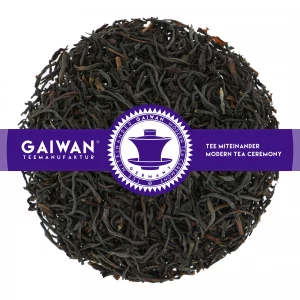
Out of stock
Taste: light, mild, tangy
Preparation: 4-5 teaspoons (10-15g) per 1 L (13.8 fl oz) of water (100°C | 212°F), brewing time: less than 2 minutes.
Ingredients: black tea from Ceylon. Learn More -
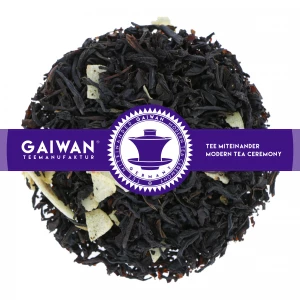
Out of stock
Taste: mild, tender, fine
Preparation: 4-5 teaspoons (10-15g) per 1 L (13.8 fl oz) of water (100°C | 212°F), brewing time: 3-4 minutes.
Ingredients: black tea from ceylon and china, coconut flakes, flavors. Learn More -
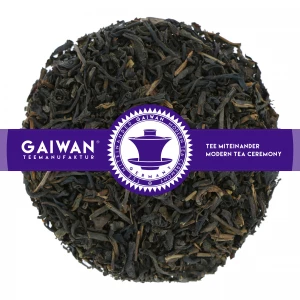
Out of stock
Taste: intensive, sweet, full
Preparation: 4-5 teaspoons (10-15g) per 1 L (13.8 fl oz) of water (100°C | 212°F), brewing time: 3-4 minutes.
Ingredients: black, decaffeinated tea from Ceylon, flavour. Learn More -
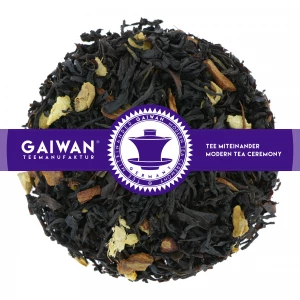
Out of stock
Taste: tangy, warming, rounded
Preparation: 4-5 teaspoons (10-15g) per 1 L (13.8 fl oz) of water (100°C | 212°F), brewing time: 3-4 minutes.
Ingredients: black tea from ceylon and china, cassia¹, ginger¹, orange peel, flavour. Ingredients¹ from controlled organic cultivation. Learn More -

Out of stock
Taste: rich, full, salubrious
Preparation: 4-5 teaspoons (10-15g) per 1 L (13.8 fl oz) of water (100°C | 212°F), brewing time: less than 2 minutes.
Ingredients: black tea from controlled organic cultivation in Ceylon. Learn More -

Out of stock
Taste: strong, tangy
Preparation: 4-5 teaspoons (10-15g) per 1 L (13.8 fl oz) of water (100°C | 212°F), brewing time: less than 2 minutes.
Ingredients: black tea from controlled organic cultivation in Ceylon. Learn More -

Out of stock
Taste: full, rounded, aromatic
Preparation: 4-5 teaspoons (10-15g) per 1 L (13.8 fl oz) of water (100°C | 212°F), brewing time: less than 2 minutes.
Ingredients: black tea from controlled organic cultivation in Ceylon. Learn More -

Out of stock
Taste: full, rounded, aromatic
Preparation: 4-5 teaspoons (10-15g) per 1 L (13.8 fl oz) of water (70°C | 158°F), brewing time: 3-4 minutes.
Ingredients: black tea from controlled organic cultivation in Ceylon. Learn More -

Out of stock
Taste: full, rounded, fine
Preparation: 4-5 teaspoons (10-15g) per 1 L (13.8 fl oz) of water (100°C | 212°F), brewing time: 3-4 minutes.
Ingredients: black tea from Ceylon. Learn More -

Out of stock
Taste: full, tangy, aromatic
Preparation: 4-5 teaspoons (10-15g) per 1 L (13.8 fl oz) of water (100°C | 212°F), brewing time: less than 2 minutes.
Ingredients: black tea from Ceylon. Learn More -

Out of stock
Taste: fine, fruity, fresh
Preparation: 4-5 teaspoons (10-15g) per 1 L (13.8 fl oz) of water (100°C | 212°F), brewing time: less than 2 minutes.
Ingredients: black tea from Ceylon. Learn More -

Out of stock
Taste: light, mild, tangy
Preparation: 4-5 teaspoons (10-15g) per 1 L (13.8 fl oz) of water (100°C | 212°F), brewing time: less than 2 minutes.
Ingredients: black tea from Ceylon. Learn More -

Out of stock
Taste: English, aromatic
Preparation: 4-5 teaspoons (10-15g) per 1 L (13.8 fl oz) of water (100°C | 212°F), brewing time: less than 2 minutes.
Ingredients: black tea from India, ceylon from controlled organic cultivation. Learn More
The history of tea cultivation in Ceylon
In 1867, the Scotsman James Taylor was the first to cultivate tea plants in Ceylon and make delicious tea from them. In 1872, he opened the first factory, which exported Ceylon tea to England just one year later. That his experiment succeeded had been a blessing for the island. At that time, Ceylon lived mainly from coffee cultivation, but a particularly persistent fungal infestation destroyed massive numbers of coffee plantations throughout the continent, depriving the inhabitants of their largest source of income.
As soon as word got out that tea could grow in Ceylon, the affected coffee farmers cleared their plantations to grow tea and revive the economy. Since then, Ceylon has become an extremely popular high quality tea and one of the country's main exports, along with coffee, rubber and coconuts. In 2017, Sri Lanka exported over a billion dollars worth of tea. Currently, Sri Lanka ranks fourth among the countries with the largest tea production, with around 350 tons of tea per year.
